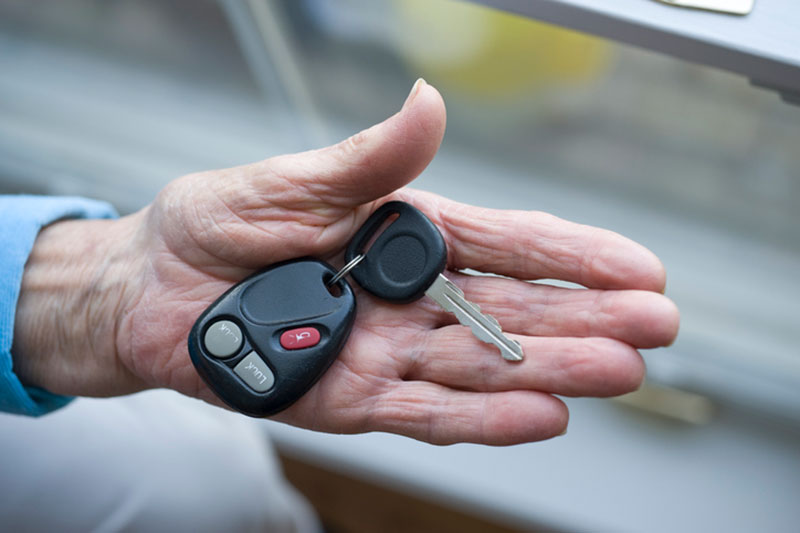
When it comes to helping seniors stay independent, home care is an excellent option, especially when driving is no longer safe.
It is a discussion no one wants to have with older parents, but one that will probably be needed eventually. Having the ability to drive whenever and wherever we want is an essential element to our sense of independence, yet as we grow older, driving becomes unsafe for multiple reasons: decreased reflex and response times, cognitive problems, poor vision, and more. If you’re starting to have concerns about an older loved one’s ability to continue to drive safely, it is time to talk about giving up the car keys and strategizing how to help a loved one stay independent.
How Can You Tell That It Is Time for a Senior to Stop Driving?
There are certain warning signs to watch for that suggest that the senior should stop driving, including:
- Becoming lost on familiar driving routes
- Missing traffic signals or signs
- Failure to yield or cutting off other drivers
- Making wider turns than necessary
- An inability to stay between the lines
- Coming across as sleepy or not alert
- Having trouble judging distances
- Becoming easily agitated, frustrated, or angry
- Not using mirrors or turn signals properly
How Should You Start the Discussion About Giving Up the Keys?
Most importantly, try to avoid criticizing or correcting the person’s mistakes when they are driving, as this can cause additional dangerous behaviors. Once the car is parked, calmly mention specific instances of concern that you observed as a starting point to the bigger discussion about the need for the person to quit driving.
The following tips are a good way to proceed with the conversation to ensure you are being heard and taken seriously. Use the conversation to minimize the senior’s stress and to offer a solution that will help the senior maintain independence.
Key Points to Bear in Mind:
- Enlist help from others that the senior knows and trusts, either in supplying their own examples of concerns or perhaps in joining you in the conversation with the older adult.
- Keep from blaming or shaming the senior.
- Keep your temperament calm and supportive so you do not seem angry.
- Discuss specific instances of worrying behaviors.
- Let the senior know you’re in this together, and that collectively you’ll be able to come up with a solution that ensures safety for the senior as well as other drivers and pedestrians.
- Expect to see resistance and defensiveness, and that it could take more than one conversation.
If the person remains adamant about not stopping driving, schedule a checkup and evaluation with the doctor. There may be side effects from medications, vision problems, or other health-related reasons behind driving issues that can be fixed; or the physician may have more influence in encouraging the person to stop driving.
How Can a Senior Stay Independent Without Being Able to Drive?
Fortunately, there is an easy remedy that allows an older adult to get around as they wish: a professional in-home caregiver from At-Home Care Company, a trusted provider of home care in Pleasant Hill, IA and throughout the nearby areas.
Our care providers are available to offer transportation and accompaniment whenever and wherever a senior would like to go, including:
- Medical appointments and procedures
- Running errands and shopping
- Social visits
- Going out to lunch or for a walk in the park
- Hair and nail appointments
- Exercise or other classes
- Even vacations or longer-destination outings
The best part? A care provider can offer friendly companionship and conversations that make any excursion so much more fun than going alone!
Contact our experts in home care in Pleasant Hill, IA and the surrounding areas at 515-292-2650 to learn about our transportation services for seniors and help an older adult you love safely enjoy life to the fullest.
